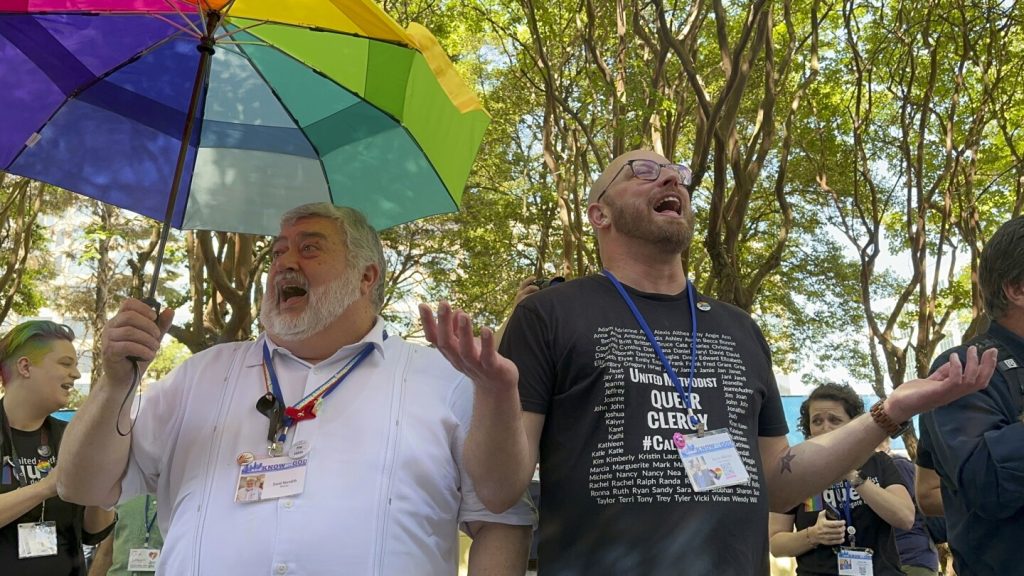United Methodist delegates at the General Conference in Charlotte, North Carolina, made historic changes to the denomination’s official teachings on LGBTQ issues. They removed a 52-year-old declaration that labeled the practice of homosexuality as incompatible with Christian teaching. The delegates also approved a new definition of marriage as a covenant between two people of faith, which may or may not involve a man and a woman. These decisions mark significant reversals in the church’s stance on LGBTQ matters, as anti-LGBTQ language has been systematically removed from official documents.
The removal of the ban on self-avowed practicing homosexuals being ordained or appointed as ministers was a significant step taken by the General Conference. Delegates have been gradually eliminating discriminatory language throughout the denomination’s official documents. The new definition of marriage, which recognizes different cultural contexts, was the result of a compromise after a debate that exposed tensions between some U.S. and international delegates. The approval of the new language was seen as a positive step towards inclusivity and acceptance within the church.
Despite the progress made at the conference, there were contrasting reactions from different groups within the denomination. Celebratory gatherings of LGBTQ people and their allies were held alongside defiant gatherings of African delegates who opposed the changes. Some African delegates expressed disappointment in the decision to contradict the Bible’s teaching on marriage and sexual morality. The denomination’s progressive agenda may lead to the loss of conservative churches, particularly in Africa, where same-sex activity is criminalized in some countries.
The approval of the revised Social Principles reflects a more inclusive and modern approach to various social issues within the United Methodist Church. The new version removes the clause that previously condemned the practice of homosexuality as incompatible with Christian teaching. It also calls for human rights for all individuals, regardless of sexual orientation, gender identity, race, ethnicity, or gender categories. The denomination’s decision to revise its social stances represents a significant shift in its approach to LGBTQ matters and other social issues.
The General Conference’s decision to update its Social Principles is a historic milestone in the denomination’s ongoing discussion of LGBTQ issues. The removal of discriminatory language and the adoption of more inclusive language demonstrates the church’s commitment to embracing diversity and acceptance. The debates and compromises made during the conference highlight the challenges and tensions within the denomination, particularly between U.S. and international delegates. The decisions made at the General Conference are likely to have lasting implications for the future of the United Methodist Church and its relationships with its members.
The changes made at the General Conference signal a new chapter in the United Methodist Church’s approach to LGBTQ issues and social justice. The revisions to the denomination’s Social Principles reflect a broader shift towards inclusivity and acceptance of diverse perspectives. Despite the differing opinions and reactions to the decisions made, the overall direction of the church is moving towards a more progressive and inclusive stance. The General Conference’s decisions will shape the future of the denomination and its engagement with LGBTQ individuals and communities. The denomination’s commitment to reevaluating and updating its teachings highlights a willingness to adapt to changing societal norms and values.


